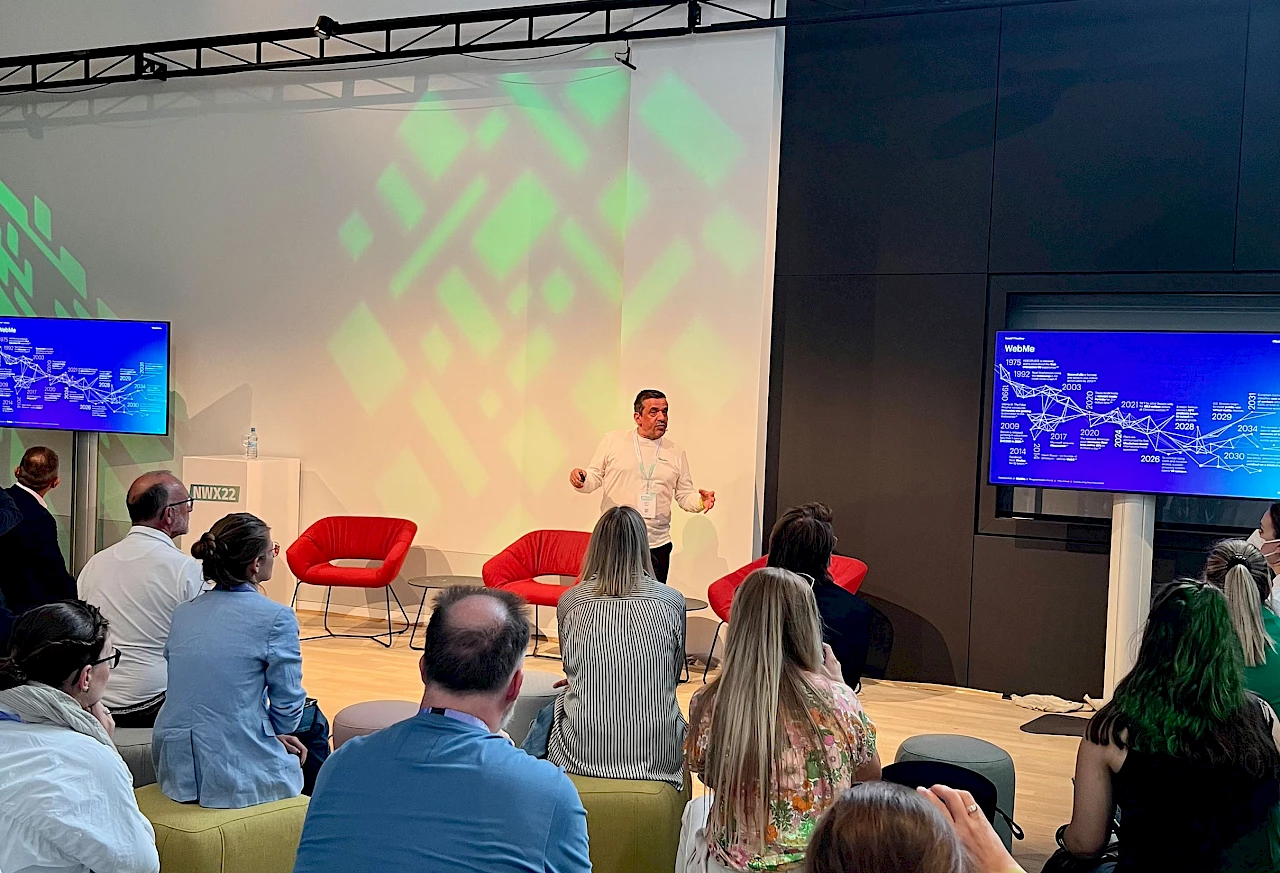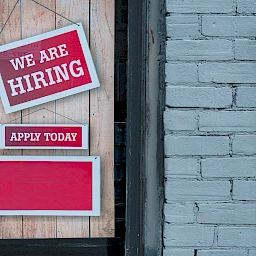Future workplaces and new working tools are the topic of Raphael Gielgen. During his keynote at New Work Experience in June 2022, the trend scout spoke about developments in the working world and drew scenarios of how workspaces can be designed in the future.
Work is becoming more flexible, global and virtual
Work will have more degrees of freedom in the future. The “remote first” years have shown that work can also take place at third places. National boundaries are losing relevance, but time zones are gaining in importance. Once the legal basis has been laid, remote working within identical time zones could become standard. Existing offices must transform into spaces of meeting and dialogue and become more attractive. But companies will also, Gielgen is sure, increasingly think about complementary locations in close-to-nature surroundings. He calls them “offsites” and uses the Salesforce Farm in Santa Cruz, California, to explain what they should ideally be. Namely, places where employees can celebrate rituals and experience corporate culture. But there is a simpler way. According to Gielgen, corporate culture can also be experienced when companies add new dimensions to workspaces. By charging with narratives, as is the case in the London coworking space 180 The Strand, workplaces can become centres for creativity and innovation. However, this only works if both companies and employees are willing to change and actively engage in change processes.
The future working world is characterised by reskilling
Workplaces and working tools will change. Labour shortage and the fact that in the future half of companies’ turnover will be generated by products and services that do not even exist today require a transformation of the working world and permanent learning processes. Consequently, reskilling, the targeted further qualification of employees, will become an important success factor in the HR sector. Existing employees will expand their skills in a process of continuous learning, as will new employees and employees who, at the time of familiarisation, are still lacking skills to take on their role – supported by the new employer. According to Gielgen, willingness to acquire new skills and to change both digitally and humanly is required.
Virtual working environments become reality
Establishing the Metaverse is creating new realities. Whether we eventually enter the virtual office or not, at some point in the future, tools such as data glasses will support us in grasping complex issues and working collaboratively. Physical realities will be complemented by augmented realities, immersive experiences will enter the office, artificial intelligence will support work routines. This makes it necessary for companies to empower their employees to embrace new technologies and integrate them into their daily work. This can be done by exploration and social learning or with the help of in-house formats that get employees fit for the digital transformation.
Raphael Gielgen appeals to his audience to remain curious and embrace the changes in the working world. With the right “What if...?” questions, there is a chance to create a new working reality that combines physical and virtual spaces in the best possible way.





